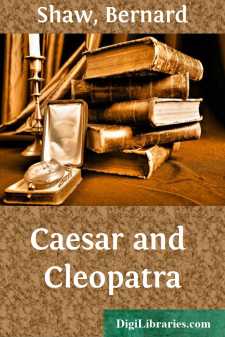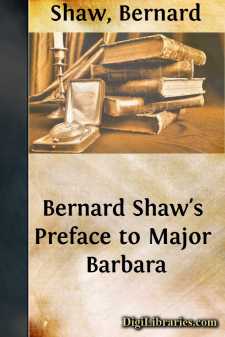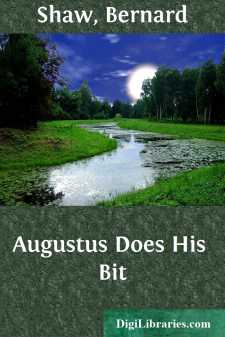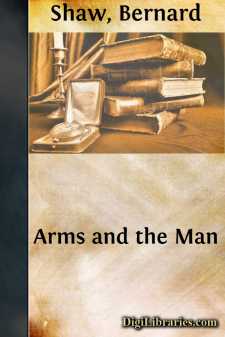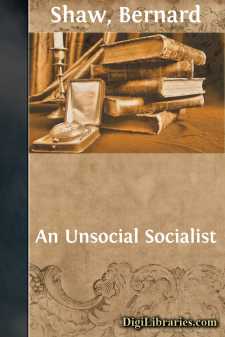Categories
- Antiques & Collectibles 13
- Architecture 36
- Art 48
- Bibles 22
- Biography & Autobiography 813
- Body, Mind & Spirit 142
- Business & Economics 28
- Children's Books 17
- Children's Fiction 14
- Computers 4
- Cooking 94
- Crafts & Hobbies 4
- Drama 346
- Education 46
- Family & Relationships 57
- Fiction 11829
- Games 19
- Gardening 17
- Health & Fitness 34
- History 1377
- House & Home 1
- Humor 147
- Juvenile Fiction 1873
- Juvenile Nonfiction 202
- Language Arts & Disciplines 88
- Law 16
- Literary Collections 686
- Literary Criticism 179
- Mathematics 13
- Medical 41
- Music 40
- Nature 179
- Non-Classifiable 1768
- Performing Arts 7
- Periodicals 1453
- Philosophy 64
- Photography 2
- Poetry 896
- Political Science 203
- Psychology 42
- Reference 154
- Religion 513
- Science 126
- Self-Help 84
- Social Science 81
- Sports & Recreation 34
- Study Aids 3
- Technology & Engineering 59
- Transportation 23
- Travel 463
- True Crime 29
Sort by:
by:
Bernard Shaw
ACT I An October night on the Syrian border of Egypt towards the end of the XXXIII Dynasty, in the year 706 by Roman computation, afterwards reckoned by Christian computation as 48 B.C. A great radiance of silver fire, the dawn of a moonlit night, is rising in the east. The stars and the cloudless sky are our own contemporaries, nineteen and a half centuries younger than we know them; but you would not...
more...
by:
Bernard Shaw
BERNARD SHAW N.B. The Euripidean verses in the second act of Major Barbara are not by me, or even directly by Euripides. They are by Professor Gilbert Murray, whose English version of The Baccha; came into our dramatic literature with all the impulsive power of an original work shortly before Major Barbara was begun. The play, indeed, stands indebted to him in more ways than one. G. B. S. Before...
more...
by:
Bernard Shaw
WHY NOT GIVE CHRISTIANITY A TRIAL? The question seems a hopeless one after 2000 years of resolute adherence to the old cry of "Not this man, but Barabbas." Yet it is beginning to look as if Barabbas was a failure, in spite of his strong right hand, his victories, his empires, his millions of money, and his moralities and churches and political constitutions. "This man" has not been a...
more...
by:
Bernard Shaw
AUGUSTUS DOES HIS BIT The Mayor's parlor in the Town Hall of Little Pifflington. Lord Augustus Highcastle, a distinguished member of the governing class, in the uniform of a colonel, and very well preserved at forty-five, is comfortably seated at a writing-table with his heels on it, reading The Morning Post. The door faces him, a little to his left, at the other side of the room. The window is...
more...
by:
Bernard Shaw
INTRODUCTION To the irreverent—and which of us will claim entire exemption from that comfortable classification?—there is something very amusing in the attitude of the orthodox criticism toward Bernard Shaw. He so obviously disregards all the canons and unities and other things which every well-bred dramatist is bound to respect that his work is really unworthy of serious criticism (orthodox)....
more...
by:
Bernard Shaw
ANNAJANSKA is frankly a bravura piece. The modern variety theatre demands for its "turns" little plays called sketches, to last twenty minutes or so, and to enable some favorite performer to make a brief but dazzling appearance on some barely passable dramatic pretext. Miss Lillah McCarthy and I, as author and actress, have helped to make one another famous on many serious occasions, from Man...
more...
by:
Bernard Shaw
PROLOGUE Overture; forest sounds, roaring of lions, Christian hymn faintly. A jungle path. A lion's roar, a melancholy suffering roar, comes from the jungle. It is repeated nearer. The lion limps from the jungle on three legs, holding up his right forepaw, in which a huge thorn sticks. He sits down and contemplates it. He licks it. He shakes it. He tries to extract it by scraping it along the...
more...
by:
Bernard Shaw
CHAPTER I In the dusk of an October evening, a sensible looking woman of forty came out through an oaken door to a broad landing on the first floor of an old English country-house. A braid of her hair had fallen forward as if she had been stooping over book or pen; and she stood for a moment to smooth it, and to gaze contemplatively—not in the least sentimentally—through the tall, narrow window....
more...


